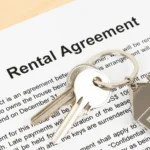The question on many landlords’ minds is: What is the cost of hiring a property management company? It’s a valid and crucial question that deserves a detailed answer. This comprehensive guide will break down the various fees, explain different pricing structures, and help you understand the true value proposition of professional property management. We’ll also provide essential insights to help you make an informed decision for your rental property investment.
As a rental property owner, you understand that managing your investment can be a full-time job. From finding reliable tenants and collecting rent to handling maintenance and staying compliant with ever-changing regulations, the responsibilities are endless. This is where a professional property management company like Avenue Residential & Leasing Management comes in, offering invaluable expertise and peace of mind.
- 1. Understanding Property Management Fees: The Basics
- 2. Common Property Management Fee Structures
- 3. A Deep Dive into Additional Property Management Fees
- 4. Factors Influencing Property Management Costs
- 5. Calculating Your Potential Property Management Costs
- 6. The ROI of Hiring a Property Management Company
- 7. Self-Management vs. Professional Management: A Cost-Benefit Analysis
- 8. Choosing the Right Property Management Company: Beyond the Price Tag
- 9. Avenue Residential & Leasing Management: Your Partner in Property Success
- Conclusion: Is Professional Property Management Worth the Cost?
1. Understanding Property Management Fees: The Basics
Before we delve into specific costs, it’s essential to grasp what you’re paying for. Property management companies offer a wide array of services designed to maximize your rental income and minimize your headaches.
Comprehensive property management includes:
- Tenant Acquisition: Marketing, showings, thorough tenant screening (background, credit, employment, rental history checks).
- Rent Collection: Setting up payment systems, collecting rent, managing late payments.
- Property Maintenance & Repairs: Coordinating routine and emergency repairs, vendor management.
- Tenant Relations: Addressing inquiries, complaints, and mediating disputes.
- Lease Management: Drafting, enforcing, and renewing leases; handling move-ins/move-outs.
- Financial Reporting: Providing detailed income and expense statements, often via an owner portal.
- Legal Compliance: Ensuring adherence to local, state, and federal housing laws, including fair housing and eviction procedures.
The Core Value Proposition
The core value of hiring a professional property manager lies in their ability to save you time, reduce stress, and ultimately improve the profitability and longevity of your real estate investment. While there’s a cost involved, the benefits often far outweigh the expenses.

2. Common Property Management Fee Structures
Property management companies generally employ a few common pricing models for their core services. Understanding these structures is the first step in assessing the cost of hiring a property manager.
Percentage of Monthly Rent
This is the most common fee structure, where managers charge a percentage of the gross monthly rent collected.
- Typical Range: 8% to 12% of monthly rent. For a $1,500/month property with a 10% fee, the cost is $150/month.
- Pros:
- Alignment of Interests: Incentivizes managers to quickly find tenants and maximize rent.
- Scalability: Fees adjust with rent changes.
- No Income, No Fee (Often): Many companies only charge the monthly management fee when rent is collected, meaning no charge for vacancy or tenant default (though this varies by contract).
- Cons:
- Higher Rent, Higher Fee: For high-value properties, the percentage can result in a substantial dollar amount.
- Less Predictable: Monthly payments can fluctuate with rent changes or vacancies.
Flat Fee Per Unit
Some companies charge a flat monthly fee per unit, regardless of rental income.
- Typical Range: $75 to $200 per unit per month, varying by location and services.
- Pros:
- Predictable Expenses: Simplifies budgeting with consistent monthly payments.
- Potentially More Economical for High-Rent Properties: Can be cheaper than a percentage-based fee for high-rent properties.
- Cons:
- Less Incentive for Higher Rent: The manager’s income isn’t directly tied to maximizing rental income.
- May Not Reflect Service Level: A flat fee may not perfectly align with specific property management needs.
Hybrid Models
Some companies combine percentage and flat-fee structures. For example, a lower percentage for monthly management but higher separate fees for specific services like tenant placement. Understanding the entire fee schedule is crucial.

3. A Deep Dive into Additional Property Management Fees
Beyond the primary monthly management fee, property management companies often charge additional fees for specific services. These “extra” fees are standard in the industry and cover tasks that require significant time, resources, or specialized expertise. Being aware of these charges is key to understanding the total cost of property management.
Leasing/Tenant Placement Fees
This common fee covers the extensive work of finding and securing a new tenant.
- Covers: Advertising, showings, applicant screening (credit, background, eviction history), lease preparation and execution, move-in inspections.
- Typical Charge: 50% to 100% of one month’s rent, or a flat fee, charged once per new tenant.
Lease Renewal Fees
Some companies charge for administrative work when an existing tenant renews their lease.
- Covers: Negotiating new lease terms, preparing renewal paperwork, updating records.
- Typical Charge: A flat fee ($100-$300) or a smaller percentage of one month’s rent (e.g., 25-50%).
Vacancy Fees
Less common, but some managers charge a reduced fee during property vacancy.
- Covers: Continued marketing, property inspections, ensuring property security.
- Typical Charge: Reduced monthly management fee, a flat fee ($50-$150/month), or sometimes waived.
Maintenance and Repair Markups
Some property managers add a markup to vendor invoices for coordinating repairs.
- Covers: Time and effort coordinating contractors, obtaining bids, overseeing work, ensuring quality.
- Typical Charge: 10% to 20% of the total repair cost. Companies with in-house maintenance may not charge an explicit markup, but their internal pricing might reflect this.
Setup/Onboarding Fees
A one-time fee upon signing with a management company.
- Covers: Initial property inspection, owner account setup, documentation collection, potential marketing photography.
- Typical Charge: $0 to $500, depending on onboarding complexity and company policy.
Eviction Fees
Managers can handle the complex eviction process.
- Covers: Filing legal paperwork, attending court hearings, coordinating with law enforcement, overseeing tenant departure.
- Typical Charge: A flat fee ($200-$500+) in addition to court and legal fees.
Administrative and Technology Fees
Small charges for processing payments, online owner portals, or specific reports.
- Covers: Operational costs for account management, technology infrastructure, record-keeping.
- Typical Charge: Varies, usually small flat fees ($5-$25 per transaction or per month).
For a detailed breakdown of common property management fees, check out this helpful article from Mynd: How Much Property Management Costs: A Straightforward Guide.

4. Factors Influencing Property Management Costs
The cost of property management services isn’t one-size-fits-all. Several factors play a significant role in determining the fees you’ll encounter.
Property Type and Size
- Single-Family Homes vs. Multi-Unit Properties: Managing a single-family home generally differs in effort and fees from managing a multi-unit apartment or commercial property. Larger complexes often benefit from economies of scale, potentially leading to lower percentage fees per unit.
- Luxury vs. Standard Rentals: High-end properties may have higher management fees due to expectations of personalized service, higher maintenance standards, and more complex tenant demands.
Location, Location, Location
Property management fees vary Just like real estate values, property management fees vary by geographic location..
- High-Cost vs. Low-Cost Areas: Markets with higher living costs and property values (e.g., major metropolitan areas) often have higher fees due to labor costs, competition, and regulatory complexity.
- Demand for Rentals: In areas with high rental demand and low vacancy rates, managers may adjust pricing based on ease of tenant placement.
Scope of Services
More comprehensive services generally mean higher costs.
- Full-Service Management: Includes tenant acquisition to financial reporting, naturally more expensive than limited services (e.g., just tenant placement).
- A La Carte Services: Some companies offer individual services, useful for landlords needing help with specific tasks.
Market Conditions and Competition
The local property management market influences pricing.
- Competitive Markets: High competition can drive prices down.
- Niche Markets: Specialized management (e.g., short-term rentals, commercial, HOA) may have different fee structures due to unique demands and expertise.
Number of Properties Managed
If you own multiple rental properties, you might be able to negotiate a discounted rate or a more favorable fee structure. Property management companies often offer incentives for clients with a portfolio of properties.

5. Calculating Your Potential Property Management Costs
To truly understand the financial impact, let’s walk through a hypothetical example of calculating property management costs.
A Hypothetical Example
Let’s consider a single-family home in St. Louis, Missouri, that you plan to rent for $1,500 per month. Here’s a possible breakdown of annual property management expenses:
- Monthly Management Fee (9%): $1,500 x 0.09 = $135 per month.
- Annual: $135 x 12 months = $1,620
- Leasing Fee (one new tenant per year, 75% of one month’s rent): $1,500 x 0.75 = $1,125.
- Annual: $1,125 (assuming a tenant turnover every 12-18 months)
- Lease Renewal Fee (every other year): $200.
- Annual average: $100
- Maintenance Markup (estimated $800 in annual repairs, 15% markup): $800 x 0.15 = $120.
- Annual: $120
- Setup Fee (one-time, first year only): $250.
- Annual average (spread over 5 years): $50
Estimated Annual Property Management Cost (Year 1 with new tenant): $1,620 (monthly) + $1,125 (leasing) + $100 (renewal avg) + $120 (maintenance) + $50 (setup avg) = $3,015
This translates to approximately $251 per month in the first year with a new tenant, or roughly 16.8% of your gross rental income annually when considering all fees over a year. Subsequent years without a new tenant would typically be lower.
The Importance of a Detailed Quote
This is just a hypothetical example. Every property management company has its own fee schedule. When you’re speaking with potential property managers, always request a detailed, itemized quote that clearly outlines all potential fees, including:
Base monthly management fee (percentage or flat)
- Leasing/tenant placement fee
- Lease renewal fee
- Vacancy fee (if applicable)
- Maintenance markup policy
- Setup fee
- Eviction fee
- Any other administrative or technology fees
Ensure you understand what services are included in each fee and what might incur additional charges. Don’t be afraid to ask questions for clarification.
Want to estimate your property management costs? Try a property management fee calculator like this one from RentalRealEstate.com: Free Rental Property Management Fee Calculator.

6. The ROI of Hiring a Property Management Company
While a clear financial outflow, property management is an investment with significant potential ROI, often extending beyond direct monetary savings.
Time Savings and Stress Reduction
This is perhaps the most immediate and tangible benefit for many property owners. Managing a rental property can consume a vast amount of time, from late-night tenant calls to endless paperwork. A property manager handles:
- 24/7 Tenant Support: Emergency repairs, questions, and complaints.
- Maintenance Coordination: Finding contractors, scheduling, overseeing projects.
- Administrative Tasks: Rent collection, financial record-keeping, lease administration.
This frees up owner time for other pursuits, reducing stress from day-to-day tenant issues.
Reduced Vacancy Rates and Optimized Rent
Professional managers are local market experts. They provide:
- Accurate Pricing: Optimal rent pricing to attract tenants quickly and maximize income.
- Effective Marketing: Professional photography, online listings, targeted advertising for qualified tenants, minimizing vacancies.
- Swift Turnover: Streamlining the process between tenants for quick re-rental.
Lower vacancy rates directly increase rental income.
Better Tenant Quality
Rigorous tenant screening processes reduce risks from bad tenants. Managers conduct:
- Thorough Background Checks: Criminal history and eviction records.
- Credit Checks: Assessing financial responsibility.
- Employment and Income Verification: Ensuring stable income.
- Previous Landlord References: Insights into past rental behavior.
Placing high-quality tenants reduces costly problems.
Legal Compliance and Risk Mitigation
Landlord-tenant laws are complex. Managers stay updated on:
- Fair Housing Laws: Preventing discrimination.
- Lease Agreement Compliance: Ensuring legally sound and enforceable leases.
- Eviction Procedures: Following proper legal channels.
- Safety Regulations: Ensuring property meets health and safety standards.
Their expertise protects owners from potential lawsuits and fines.
Cost Savings on Maintenance
Property management companies often have established relationships with licensed and insured contractors, leading to:
- Preferred Pricing: Volume discounts or negotiated rates.
- Quality Work: Access to reliable professionals who do the job correctly, preventing future issues.
- Preventative Maintenance: Proactive identification of minor issues before they become costly.
Overall savings from efficient and cost-effective repairs can often offset maintenance markups.
Increased Property Value
Through diligent maintenance, tenant retention, and smart financial management, a property manager helps preserve and enhance the long-term value of a real estate asset.
Learn more about the comprehensive services a property management company provides and how they benefit landlords: The Role and Benefits of Property Management Services Explained.

7. Self-Management vs. Professional Management: A Cost-Benefit Analysis
Many property owners consider self-management to avoid the cost of hiring a property management company. While it’s true that you save on direct fees, it’s crucial to conduct a thorough cost-benefit analysis that includes the hidden costs of managing your property yourself.
The Hidden Costs of Self-Management
- Your Time is Money: Time spent managing could be dedicated to other income-generating activities or leisure. Factor in opportunity cost.
- Vacancy Costs: Without expert marketing and pricing, longer vacancies mean significant lost rent. One month of vacancy can exceed a year’s management fees.
- Poor Tenant Placement: Inadequate screening leads to troublesome tenants, late payments, damage, and costly evictions.
- Maintenance Overspending: Without trusted vendors, owners may pay higher rates or experience unreliable work and repeat expenses.
- Legal Fees and Fines: Ignorance of landlord-tenant laws can result in expensive lawsuits, penalties, and court fees.
- Stress and Emotional Burnout: Constant demands, emergencies, and conflicts can lead to significant stress.
When Self-Management Makes Sense
Self-management might be viable if:
- Proximity to Property: Easy to respond quickly.
- Few Properties: Manageable workload (1-2 properties).
- Ample Time and Expertise: Understanding of landlord-tenant laws, marketing, maintenance, and tenant screening.
- Enjoy the Process: Genuine enjoyment of tenant interaction and property tasks.
- Low-Maintenance Property: Newer properties with fewer issues.
When to Choose Professional Property Management
Professional management is increasingly beneficial and cost-effective when:
- Distance from Property: Essential for out-of-state or out-of-country owners.
- Multiple Properties: Workload becomes overwhelming.
- Time is Valuable: Prefer to focus on other activities.
- New Landlord: Need expert guidance.
- Risk Minimization: Prioritize legal compliance and good tenant placement.
- Passive Income Goal: Desire a hands-off investment.
For a detailed comparison between self-management and professional management, consider this perspective from MilitaryByOwner: Self-Management vs. Hiring a Property Manager for Your Rental.

8. Choosing the Right Property Management Company: Beyond the Price Tag
While cost is a major consideration, it shouldn’t be the only factor. Focusing solely on the lowest price can lead to hidden fees, subpar service, and higher long-term costs.
Reputation and Experience
- Track Record: Proven history managing similar properties.
- Local Expertise: Familiarity with local rental market, demographics, and regulations.
- Professional Affiliations: Membership in industry organizations (e.g., NARPM) indicates professionalism.
Transparency in Fees
A reputable company will be upfront about all fees.
- Detailed Fee Schedule: Insist on a clear, itemized breakdown.
- No Hidden Fees: Be wary of unusually low base fees that often mask excessive additional charges.
- Clarity on Included Services: Understand what’s covered by the monthly fee versus separate charges.
Communication and Reporting
Effective communication is paramount.
- Communication Style: How and how often do they communicate (email, phone, owner portal)?
- Financial Reporting: What statements are provided, how frequently, and is an online owner portal accessible?
- Responsiveness: Do they respond to inquiries promptly?
Local Market Expertise
A property manager’s intimate local knowledge is invaluable.
- Rent Rates: Understanding current market rates for competitive pricing.
- Tenant Demographics: Knowing target tenants and effective marketing strategies.
- Local Regulations: Being versed in local ordinances, zoning, and specific landlord-tenant laws.
Client Testimonials and References
- Online Reviews: Check independent review sites (Google, Yelp).
- References: Ask for current client references and speak with them about fee transparency, communication, and overall service.
For more tips on choosing a property management company, read this guide from BiggerPockets: How to Choose a Property Management Company.

9. Avenue Residential & Leasing Management: Your Partner in Property Success
Avenue Residential & Leasing Management understands the significance of entrusting a valuable real estate asset to a third party. They prioritize clear, competitive, and value-driven property management solutions.
Our Commitment to Transparency and Value
They commit to transparent fee structures with no hidden costs, aligning their success with yours. They work to minimize vacancies, secure reliable tenants, and maintain properties to high standards, maximizing investment returns.
Tailored Solutions for Your Investment
They offer services for diverse property needs, from single-family homes to multi-unit complexes. Their experienced team possesses deep local market knowledge and provides exceptional service. They invite personalized consultations and detailed, transparent quotes.
Conclusion: Is Professional Property Management Worth the Cost?
The cost of hiring a property management company is an investment in financial future and peace of mind. While various fees exist, the benefits often outweigh the costs, particularly for busy individuals, out-of-state owners, or those with multiple properties.
A professional property manager from Avenue Residential & Leasing Management can help:
- Save time and reduce stress.
- Optimize rental income and minimize vacancies.
- Attract and retain high-quality tenants.
- Ensure legal compliance and mitigate risks.
- Access cost-effective maintenance and repairs.
- Preserve and enhance long-term property value.
When evaluating costs, consider the total value proposition: time saved, headaches avoided, potential for higher rental income, and protection against costly mistakes. For many rental property owners, professional property management is not just about convenience but maximizing real estate investment and achieving true passive income.
Ready to Maximize Your Rental Property Investment?
Don’t let the complexities of property management hold you back from achieving true passive income. Contact Avenue Residential & Leasing Management today for a personalized consultation and discover how our expert team can help you save time, reduce stress, and optimize your rental property’s potential.







